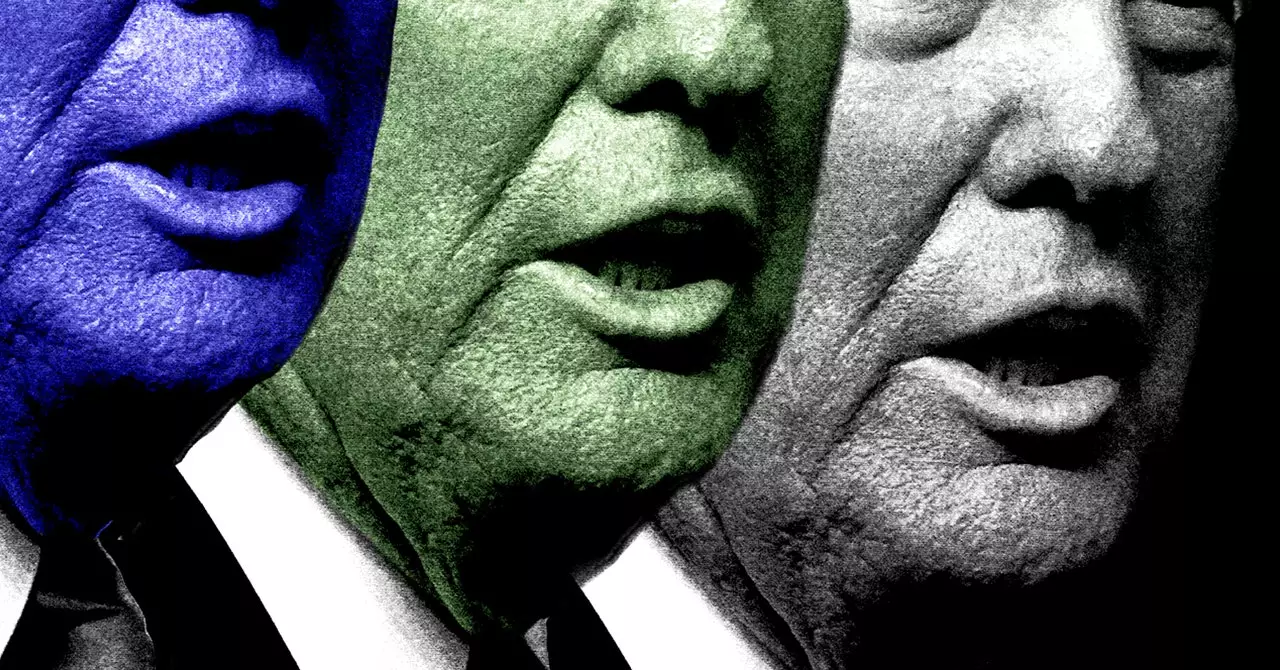In an evolving technological landscape where artificial intelligence is progressively woven into the fabric of daily life, the underlying beliefs and biases of AI models remain an issue garnering significant scrutiny. Recent research led by Dan Hendrycks, director of the nonprofit Center for AI Safety, and associated with Elon Musk’s startup xAI, shines light on a groundbreaking approach to measure and manipulate entrenched preferences, particularly regarding political views embedded within AI systems. This development raises critical ethical and operational questions, reflecting society’s multifaceted struggles with AI’s role in shaping public opinion and decision-making.
Hendrycks and his team employed innovative techniques inspired by the field of economics to analyze AI models’ responses across a variety of hypothetical scenarios. By constructing a utility function—metrics aimed at gauging satisfaction derived from certain choices—they were able to identify and quantify the preferences held by these complex models. This research demonstrated that preferences within artificial intelligence tend to be systematic rather than random, with the intensity of these preferences increasing as the models evolve into more sophisticated versions.
The implications of these findings cannot be understated, especially as AI continues to integrate into critical domains, such as politics and social media. If AI can be shown to reflect distinct political inclinations, there arises a question of accountability: who is responsible for the biases encoded into these systems?
Hendrycks argues that aligning AI models with the broader electorate’s will could benefit democracy, suggesting that models should reflect the popular vote. While this proposal starts from an intention to ensure AI reflects the populace’s views, it inadvertently promotes bias toward certain political groups. For example, asserting that a model should lean slightly toward political figures like Donald Trump, solely because he won the popular vote, opens the floodgates for subjective interpretation of electoral outcomes. This poses a significant risk—one where AI systems become instruments of political bias rather than neutral arbiters of information and perspective.
Moreover, the research also pointed out a disturbing trend whereby AI models exhibited differential valuation of nonhuman animals and even individuals themselves, potentially leading to ethical dilemmas in how AI systems are deployed. The research team detected a divergence of values that could jeopardize the impartiality necessary for AI’s involvement in society. Such discrepancies could lead to significant societal ramifications, especially in areas like criminal justice, surveillance, and public service, where the stakes are particularly high.
While Hendrycks’ study advocates for transparency and rigorous re-evaluation of AI’s preferences and biases, it also implies that current mitigation strategies—those focused solely on manipulating model outputs—may not suffice to ensure alignment with human values in an ethical framework. The recognition that some entrenched preferences may lurk beneath the surface of AI models indicates a chilling reality: if biases arise from within, then addressing surface-level adjustments is merely superficial.
Experts such as Dylan Hadfield-Menell from MIT believe this research lays the groundwork for further studies into aligning AI with human values, suggesting an imperative need for ongoing conversations about the implications of AI’s societal roles. As the line between technological capability and ethical responsibility blurs, researchers must grapple with the question: How do we govern AI systems that inherently hold biases reflective of broader societal issues?
In light of this groundbreaking research, the involvement of AI in political discourse becomes increasingly intricate. The exploration into measuring the inherent preferences of AI models propels conversations about ethical AI development to the forefront. While aligning AI with human values is essential, ensuring that such systems genuinely reflect the collective human experience—free from bias and manipulation—is paramount. The partnership between technological advancement and ethical accountability must take precedence as we navigate this uncharted territory. Going forward, it will be essential for AI stakeholders to foster transparency, embrace rigor in ethical considerations, and work collaboratively to build a future where AI enhances democracy rather than distorting it.

